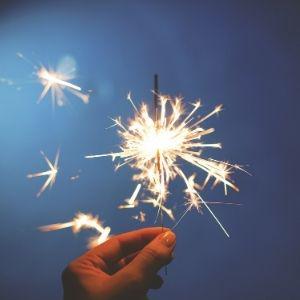
As we head towards Bonfire Night, it's important that any festivities are safe.
With all the sparkle, it’s easy to forget that fireworks can be dangerous if not used correctly and responsibly. It's also important that we think about the impact of fireworks on our more vulnerable residents and those with mental health conditions, as well as pets and animals.
What you can do
You can still celebrate at home but please make sure you do so safely and considerately by following this important advice:
Be safe
Bonfires
- Take Care When Building the Bonfire - check for anything near the site that could be a fire risk, such as wooden fences or sheds. Don’t let any stray cables or wires get anywhere near it and, ideally, you should position the Bonfire at least five times its height from your home.
- Never use petrol or any other flammable chemicals to start it, as this will make the fire spread quickly and could lead it to get out of control.
- If you have a garden hose, keep it to hand, or have a bucket of water close by in case of an emergency.
- Children should be under constant supervision and be told all the safety information in advance.
Sparklers
- Sparklers are a huge contributor to the total number of burn-related accidents each year. They are deceptively dangerous and not the toy many believe them to be. They should not be put out in water or sand the minute you are done with them. This is because they can still be extremely hot even if they aren’t alight.
- Children under five should never handle sparklers and those that are older should always be supervised by an adult. It’s not just the kids you need to watch out for though, as an intoxicated grown-up can be just as dangerous.
- Our advice would be to have a specific zone or area where you can facilitate sparkler usage in a controlled environment. Additionally, you need to be careful when preparing them too. Wear gloves to reduce the chance of suffering a burn, and never light more than one in a single instance. Doing so could prompt a flare-up.
- Never ignite them indoors, even for a moment. The sparks flying off them can start a fire, and the smoky residue will also stick to your furniture and walls.
Fireworks
- To prevent serious accidents, you need to properly prepare them and also have a plan should something go awry.
- Common sense is a big factor here. Simple things like avoiding open flames near fireworks and not using flammable chemicals to light the bonfire.
- Check that your chosen fireworks meet the relevant standards. If they don’t comply with British or European law, you shouldn’t purchase them under any circumstances.
- Just because they are cheaper, they aren’t worth the potential risk, as illegal fireworks are the cause of nearly half of all related injuries. Compliant ones will come with detailed instructions and safety precautions, which you should take time to learn and carry out.
- The ignition process must be carried out to the letter too.
- If you are lighting rockets, ensure they are firmly placed on the ground or fixed on a wall, then aim away from any guests and yourself. When lighting them, position yourself around an arm’s length away from the firework. You should always take a step back once it’s ignited.
- If, for some reason, the firework doesn’t go off properly, do not attempt to re-light it, as it could still prove dangerous.
Be considerate
Neighbours and other local residents
- Let your neighbours know if you are planning a bonfire. Not only will they be much less likely to complain, but it’ll also make it easier to carry out the safety preparations with them.
- Only use dry material for burning since anything damp will cause a lot more smoke.
- Your neighbours or people who live nearby may work shifts or may be unwell so please think about how long your celebrations will last and the time of day.
- You may not be aware of the impact that bonfires and fireworks can have on your neighbours. Those with certain health conditions may find the loud noises and flashing lights associated with bonfire night very distressing so please let your neighbours know your plans and reconsider them if it will have a serious impact on others.
- Remember, Coronavirus is known to cause serous respiratory problems, which could be made much worse with exposure to smoke from bonfires.
Noise
If you are having a few fireworks at home, you may want to buy low noise fireworks. These are perfect for anyone keen to keep the noise of their display to a minimum. Mansfield District Council encourages people to consider this option when purchasing fireworks due to the adverse effects loud bangs can have on animals and some people, particularly those with certain medical conditions.
Pets
- Some pets and animals can also find bonfire night very distressing. Try not to go overboard and unnecessarily aggravate our furry friends.
- If your neighbours have animals, check with them to see how their pets are affected by fireworks and reconsider your plans if it will have a serious impact on them.
- If you are a pet owner, the RSPCA has advice on helping your pet get through bonfire night if celebrations are taking place around you. View the RSPA website (opens in a new window).
Coronavirus has not gone away so we must still exercise caution and remember:
- HANDS - wash hands regularly for at least 20 seconds.
- FACE - wear face coverings in enclosed spaces where you can’t keep your distance.
- SPACE - where possible, keep your distance from others.
For further guidance on firework safety visit the GOV.UK website (opens in new window).
